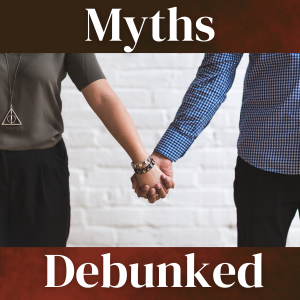16 Nov The Myths That COVID-19 Helped Bust

By Ishma Alvi.
To state that a pandemic has had life-altering effects is no over-statement, simply an acknowledgement of fact. To state that some of those alterations have been uncomfortable at best and devastating at worst is also a statement of fact. COVID-19 and everything that came with it; lockdowns, restrictions, financial strain and re-working The Normal- from schooling to work to shopping has undoubtedly affected all of us.
But there is one thing that COVID-19 has done that people have experienced but probably not named – the pandemic has busted certain long-standing relationship myths. Busted ‘em wide open!
Here are some of the top relationship myths that have (hopefully) been forever broken:
Myth #1 All you need is love. Aaand nope. All you need is effective i.e. timely, non-reactive communication done with empathy. Love is just what gets you through the first year and will definitely not withstand COVID-19, lockdowns, isolation and distancing. Not without a healthy dose of effective communication.
Myth #2 If you have to work at it, you’re doing something wrong. This one is an extension of Myth #1. Along with effective communication a relationship, like literally everything else in your life, from hygiene to keeping your job, requires effort. The conscious and thoughtful effort, from actually calendaring time to be with each other, to finding new things to talk about, to listening while suspending preconceived notions (an effortful act!). The pandemic has illustrated that just being in the same house and loving each other is not enough- talking, listening and making conscious and planned time to be together is.
Myth #3 You should know how I feel. How? Sure, over time partners will learn each other’s swings, roundabouts and triggers. But the expectations for that to be always the case and always correct is unrealistic. Especially when the feelings are as complex of a rollercoaster as those which have occurred across the pandemic. The phrase ‘use your words’ isn’t limited to children.
Myth #4 If you have to ask for it, it doesn’t count. Let’s examine this myth more closely, starting with the word ‘it’. This myth suggests that whatever ‘it’ you are asking for – affection, sex, laundry – needs to be unprompted to be a genuine expression of regard. Well, expect disappointment if that’s your position. Of course, a thoughtful and unsolicited gesture is deeply meaningful, but being thoughtful/mindful in the day-to-day, especially during the stressors of a pandemic simply is not realistic as per Myth #3. And also yes, it takes mental labour to ask for your ‘it’, but refer to Myth #2. Ask. You shall receive.
This Blog was written by Ishma Alvi. To learn more about Ishma’s experience, click here.
To book an appointment with Ishma, or one of our other Psychologists click here.


Sorry, the comment form is closed at this time.